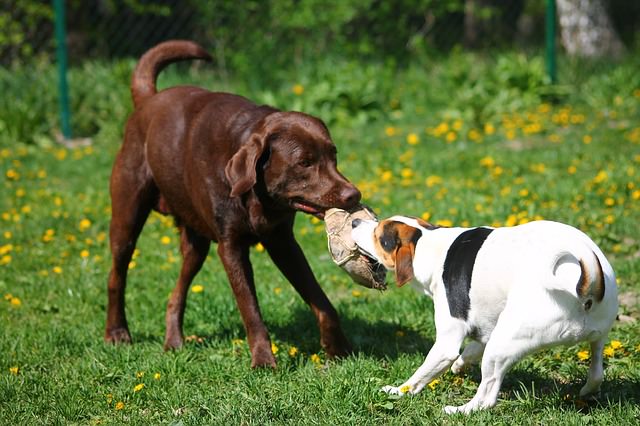Dogs are social creatures who often enjoy making new four-legged friends. In fact, some pups enjoy these interactions so much that their over-excitement comes off as being hyper, or even slightly aggressive. (Not sure if your dog is being territorial or just overeager? Check out Is Your Dog Aggressive Or Exuberant? Here’s How To Tell.)
If your find that your companion is on the exuberant side, his “love too hard” nature may result in lunging, leash-pulling, or unwelcome roughhousing, leading to sore arms for you or an altercation with his unsuspecting new pal.
But not to worry, certain things can be done to avoid this type of situation. Here are 10 tips to help your exuberant dog interact with other pups.
1. Be aware of your surroundings.
You know your dog better than anyone, and if she’s easily excitable, you should always be aware of dogs coming your way. This certainly doesn’t mean you have a bad dog, just one that is reactive, as many dogs are. If you’re out walking with your pooch and she tends to be hyper around others, know your surroundings so you can act accordingly.
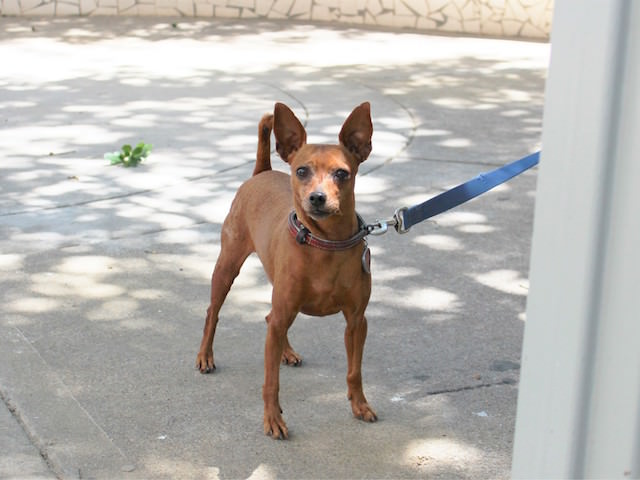
2. Know when to keep your distance.
Lunging and raised hackles are signs that your dog is anxious of the newcomer, and in this case, it’s best to keep your distance so that neither acts in defensiveness. After all, our pups are very in tune with their senses, and the dog coming your way may be the one who’s aggressive. There’s no shame in crossing the street to keep the two separated, just to be safe.
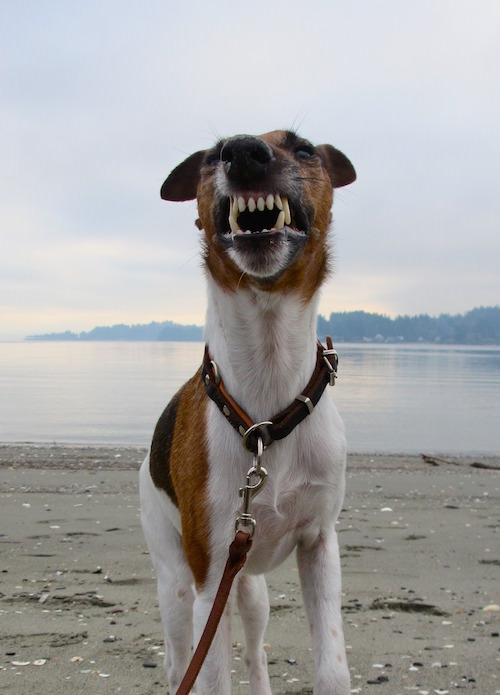
3. Keep a close eye on body language.
Of course, there are times when you and your dog are in close quarters with another, and if they get along, it can be fun for everyone! When introducing dogs, it is key to pay attention to their body language. Unfortunately, you can never guarantee that the other person is being as cautious as you, so it’s imperative that you approach the new pooch slowly, especially if they’re on leashes. If either dog growls or acts aggressively as you close the space between them, turn around and walk away.
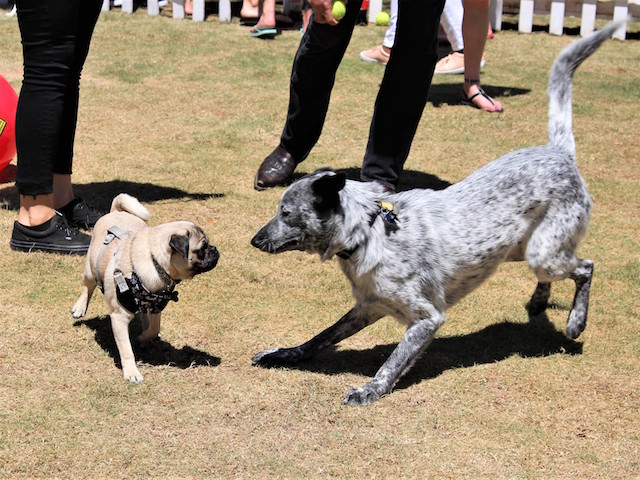
4. Keep high-value treats on hand.
The Humane Society of the United States suggests keeping high-value treats on hand so that you can reward your pup as he slowly approaches his new friend. Give him treats for remaining calm as he approaches a new dog, and if he begins to get overexcited, stop until he settles back down. If he begins misbehaving, turn around; if you continue to near the other pooch, you’ll be rewarding his unwanted behavior.
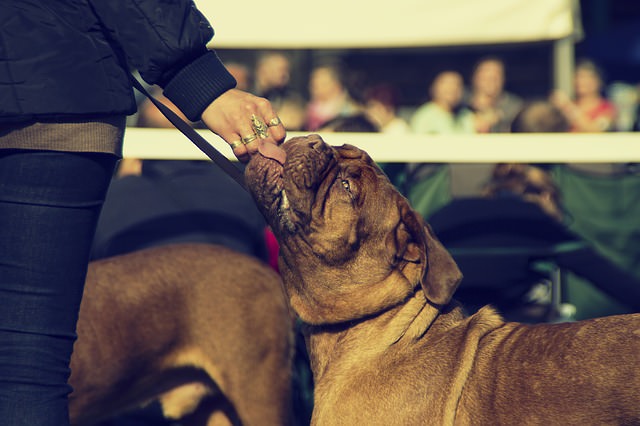
5. Make introductions in neutral territory.
If you arrange a play date so your jubilant dog can make new friends, don’t let him into another pup’s territory right off the bat – or vice versa. If your energetic dog bolts into another pooch’s space (say, you’ve brought your dog to your friend’s house and he runs through the door), the other dog may feel threatened and act territorially. Likewise, don’t let your friend’s dog charge into your house right off the bat.
Here’s a better approach: if you’ve invited someone and their pup over, allow your dog to greet the newcomer outside first (and not in the enclosed territory of their home) so they can get to know each other. Then, let the new dog in the house so she can sniff around and get acclimated without getting mowed over by your eager pup. Last, bring your dog in to meet back up with his friend, and as always, reward polite behavior.
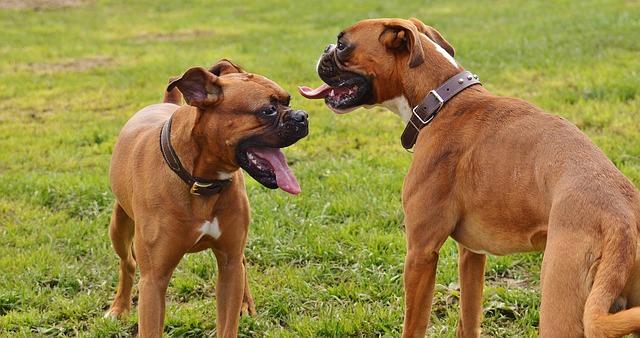
6. Never let an unleashed dog approach your leashed dog (if you can help it).
When a dog feels threatened, their exuberance can turn into fear aggression. It is never a good idea to let an unleashed dog approach a leashed dog, if you can help it, as the pup that’s contained can feel trapped and act on their vulnerability. If you choose to go to a dog park, do not keep your pooch on a leash to be swarmed by other dogs. If he cannot handle running free among other pups within a safely enclosed area, you should avoid dog parks altogether.
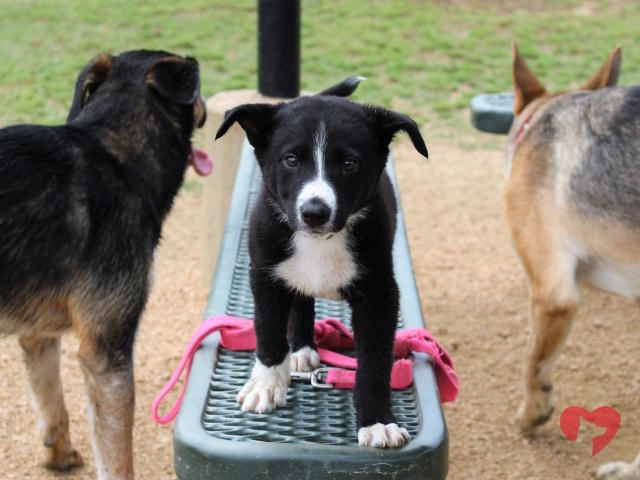
7. Have a proper leash and harness/leader.
All dog owners should have a durable leash that’s safe length (not so long that your pup can wander out of your control) and comfortable to hold. Likewise, they should also have an appropriate harness. Especially for excitable dogs, attaching their leash to their collar can choke them if they lunge, and the pressure can lead to health issues in the future. Front-clipping harnesses are a good bet to keep pulling at bay, and some even have handles on the back that you can grab hold of if your dog starts to get out of control. Another safe option is a head collar, which loops around your pup’s muzzle.
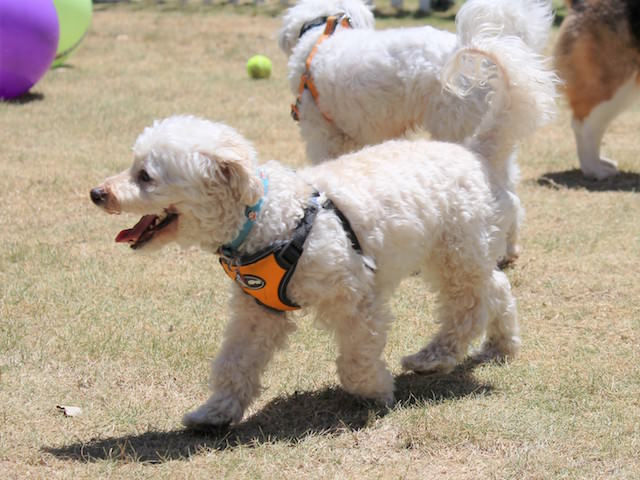
8. Discourage play that’s too rough.
When high-energy dogs get playing, sometimes it can get too rough. One’s exuberance can overshadow the other, and a wrestling match can quickly turn into an altercation. The discouragement of rough play starts with your interaction with your pooch: if you like to “wrestle” with your dog or let her nip your hands, she’ll associate this behavior with affection and display it toward other dogs. If the two of your are playing and she starts to get overexcited, stop the game so you don’t reinforce the behavior. The same goes with rough play with other dogs; if she gets carried away, it’s time to separate the two until they calm down.
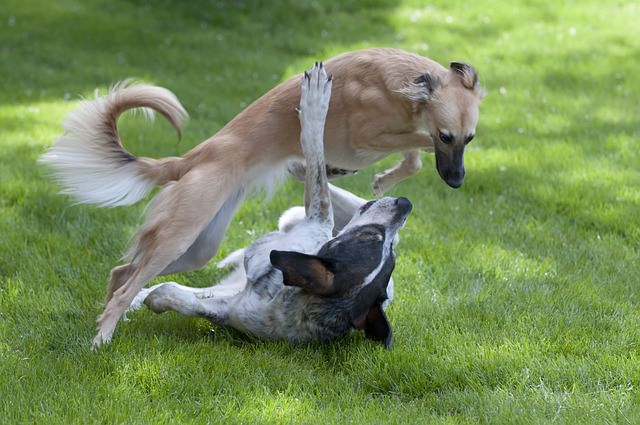
9. Don’t overwhelm your dog.
Easily excited dogs may get overwhelmed in situations where there is too much stimuli, like being surrounded by other dogs in a dog park. This can lead to snappy behavior, so if you’re working on calmer interactions with your companion, stick to one-on-one meetings, at least until he learns to calm down.
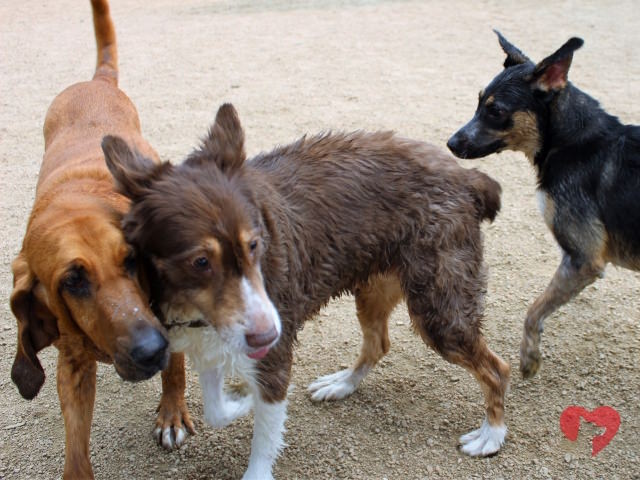
10. Find other pups whose energy level matches your dog’s.
Arranging a play date between your energetic dog and a mellow pooch may not be the best idea. Playful pups often instigate others, trying to engage them in play, and this could lead to an annoyed reaction from a dog who’d rather just chill. Instead, try to match your pooch with others of similar energy levels, and the two can romp around until they’re both tired out!
